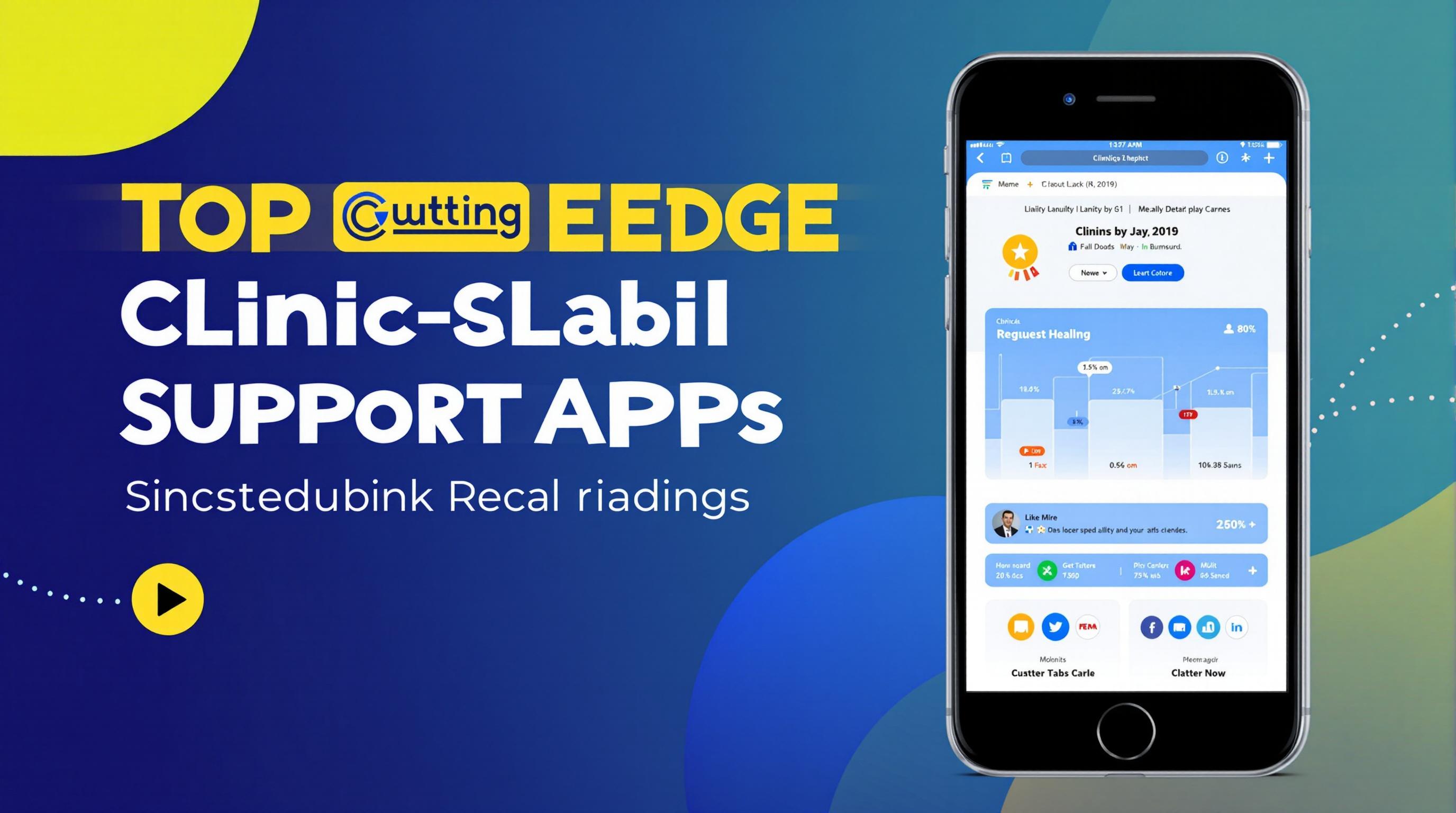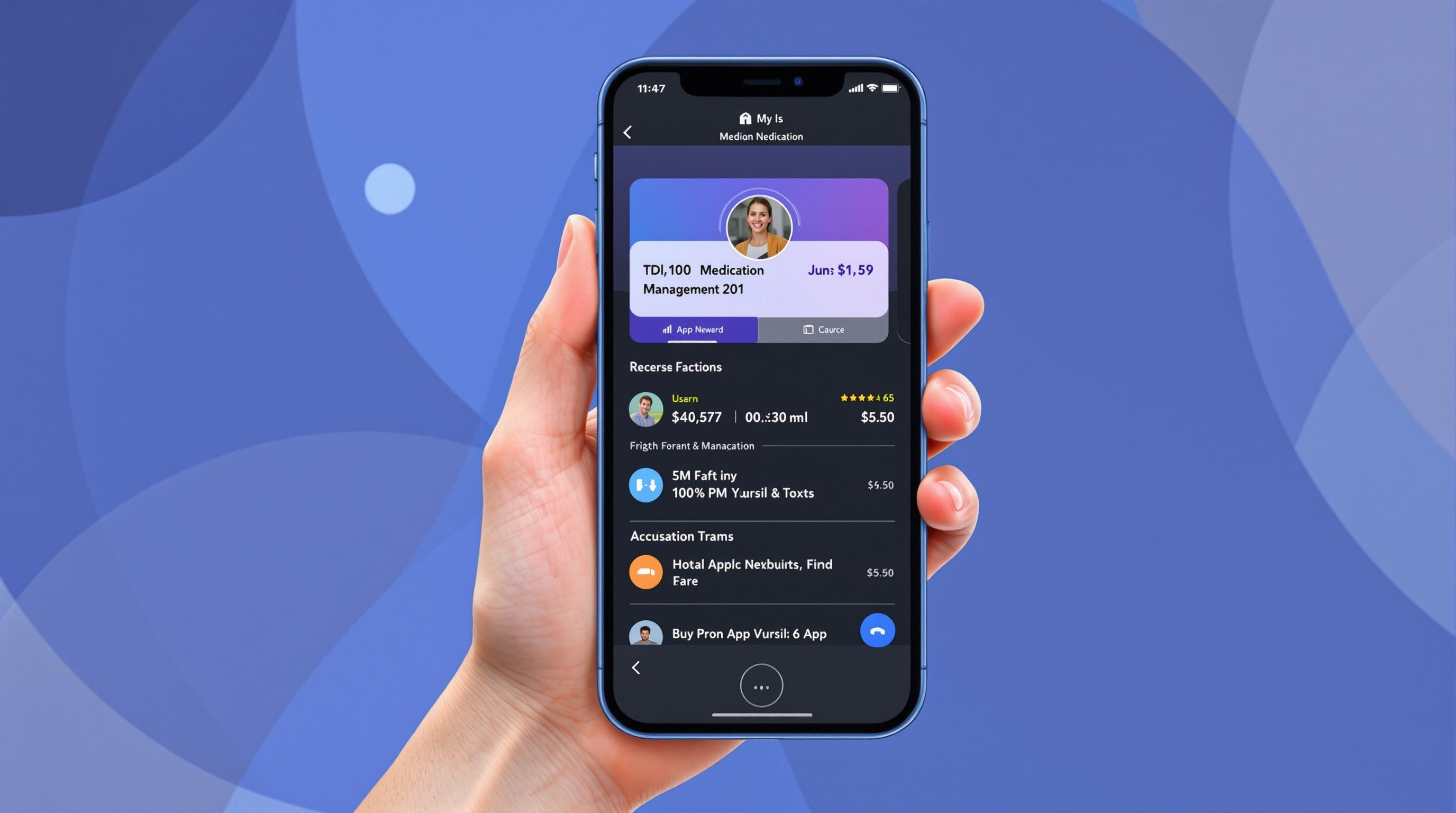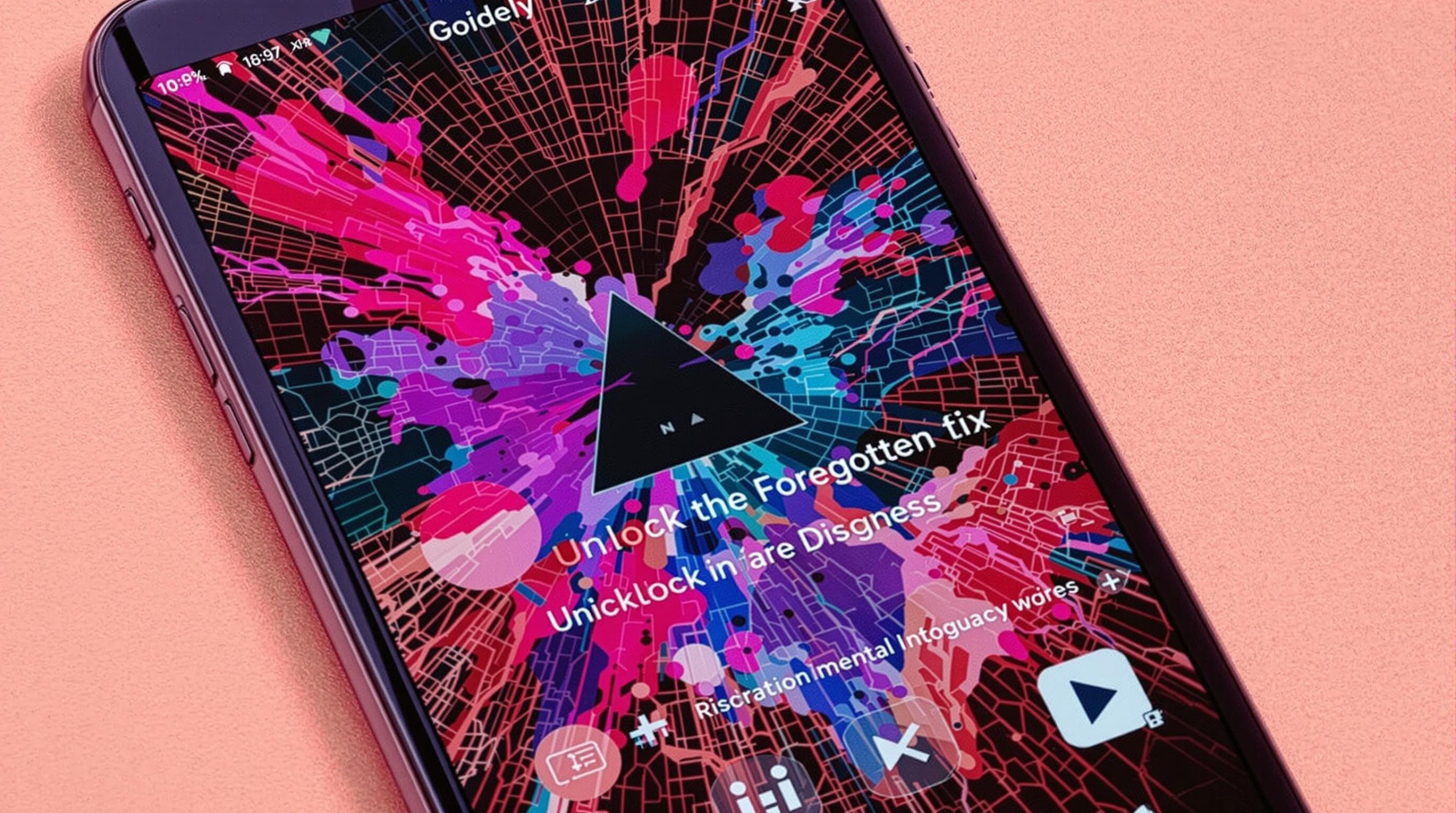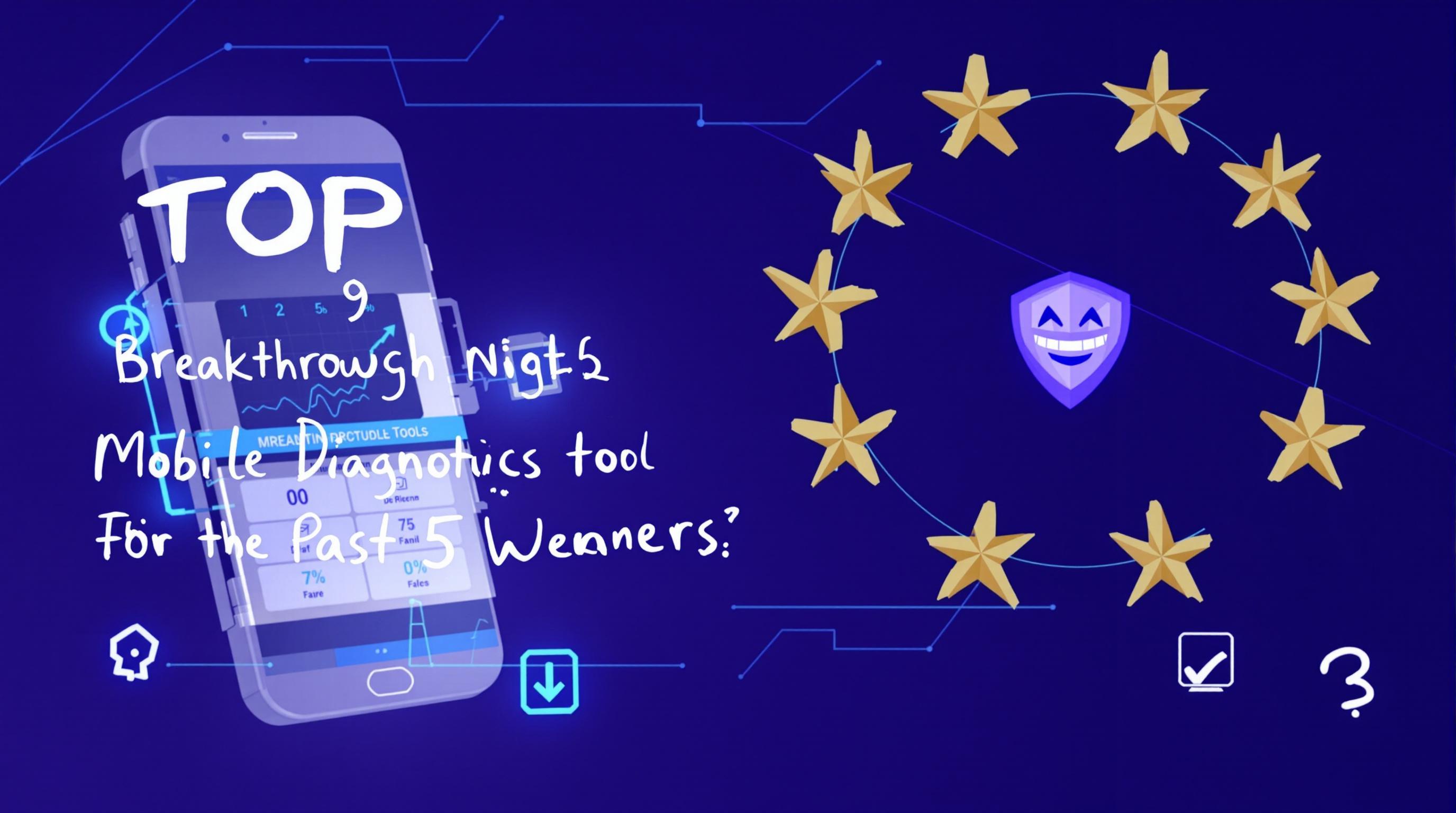Related Articles
- 7 Game-Changing Medical Compliance Apps From the Last 5 Years Redefining User Experience and Data Security
- Unveiling the Impact of Human Factors on Medical Software Adherence in Complex Clinical Settings
- Exploring Ethical Dilemmas in Medical Imaging Software: Patient Privacy and Data Ownership in the Digital Age
- Unveiling the Quiet Revolution: How Medical Imaging Software is Shaping Rare Disease Research and Diagnosis
- 5 Cutting-Edge Medication Management Apps Released Since 2019 Ranked for Accuracy and User Trust
- Unlocking the Forgotten: How Mobile Apps Are Shaping Rare Disease Diagnosis and Patient Advocacy Networks
Top 9 Cutting-Edge Clinical Support Apps Released Since 2019: Detailed Rankings and Buyer’s Guide
Top 9 Cutting-Edge Clinical Support Apps Released Since 2019: Detailed Rankings and Buyer’s Guide
Top 9 Cutting-Edge Clinical Support Apps Released Since 2019: Detailed Rankings and Buyer’s Guide
The clinical support landscape has witnessed significant technological advancements since 2019, with multiple innovative apps designed to enhance healthcare delivery, clinical decision-making, and patient management. These apps integrate artificial intelligence, real-time data analytics, and user-friendly interfaces to provide clinicians with timely, evidence-based recommendations. This article highlights the top 9 cutting-edge clinical support apps released in the last few years, offering detailed rankings and a comprehensive buyer’s guide to assist healthcare professionals in selecting the best tool for their practice.
With increasing demand for digital transformation in healthcare, these apps cover a broad spectrum of clinical needs, ranging from diagnostic support and medication management to workflow optimization. While some apps prioritize integration with electronic health records (EHR), others emphasize decision algorithms refined by machine learning or augmented reality to guide surgical procedures. Each entry reflects a combination of technological innovation, user satisfaction, and practical applicability.
Buyers evaluating clinical support applications should consider factors such as clinical accuracy, regulatory compliance (including FDA approval where applicable), compatibility with existing systems, ease of use, and the support and training offered by developers. This guide aims to streamline that evaluation by presenting each app’s main features, strengths, and caveats, backed by user reviews and independent studies when available.
1. Ada – Your Health Companion
Launched in an upgraded version in 2019, Ada is an AI-driven symptom assessment tool designed to support both clinicians and patients in preliminary diagnosis. The app uses a conversational interface to gather symptom details and compares patient inputs against a vast medical database, resulting in possible condition suggestions and urgency advice.
Ada is GDPR and HIPAA-compliant, ensuring data privacy and security—a critical factor for clinical adoption. Its seamless integration options with patient portals and telehealth platforms make it popular among outpatient clinics aiming to triage cases efficiently. Studies reveal Ada’s diagnostic suggestions have high concordance with physician assessments, reaching accuracy levels upward of 85% in some trials.
While primarily patient-facing, Ada’s backend analytics provide valuable insights to clinicians. The app’s intuitive interface is especially useful for remote or underserved settings, but some users report a learning curve for interpreting complex differential diagnoses. Nevertheless, Ada remains a top choice for symptom assessment tools launched since 2019.
2. VisualDx
VisualDx, upgraded extensively since 2019, is a diagnostic clinical decision support system (CDSS) that emphasizes visual recognition for dermatology, infectious diseases, and rare conditions. It combines a curated medical image library with algorithmic support, assisting clinicians in refining differential diagnoses based on visual clues.
The app excels by offering a vast repository of over 150,000 medical images and integrates with EHRs to allow seamless documentation and decision tracking. It has gained regulatory clearance and endorsements from multiple medical societies for its accuracy in improving diagnostic confidence, particularly in primary care and emergency settings.
Critics note that VisualDx’s subscription cost may be prohibitive for smaller practices, and its focus area limits its utility beyond dermatological or infectious conditions. However, its ability to support clinicians in visual diagnosis makes it invaluable in specialties relying heavily on pattern recognition, particularly when combined with ongoing medical education modules embedded in the platform.
3. Isabel Healthcare
Isabel Healthcare is a clinical decision support tool that leverages AI to generate a comprehensive list of possible diagnoses based on patient symptoms, history, and clinical findings. Since its refinement post-2019, Isabel has enhanced diagnostic accuracy by integrating natural language processing and more extensive clinical data sets.
The app is widely used by hospitals and healthcare systems due to its interoperability with existing clinical workflows and EHR platforms. Its use has been associated with reduced diagnostic errors and improved patient outcomes, according to several peer-reviewed studies published in journals such as the Journal of Medical Internet Research (JMIR).
One limitation is its dependence on the accuracy and completeness of input data, which can sometimes result in broad differential lists. However, its robust support system and continuous updates make Isabel a reliable companion for clinicians aiming to enhance diagnostic quality.
4. Medisafe
Medisafe is a medication management and adherence app that has expanded its clinical functionalities significantly since 2019. It focuses on ensuring patients take their medications correctly and on time, supporting clinicians with adherence data and alerts to adjust treatment plans proactively.
The app’s features include personalized medication schedules, drug interaction warnings, and refill reminders, along with integration options for clinicians to monitor adherence trends remotely. Medisafe is particularly valuable in managing chronic diseases such as diabetes and hypertension, where adherence critically impacts outcomes.
While its primary users have been patients, Medisafe’s clinical dashboard provides physicians with actionable insights, fostering a collaborative approach to medication management. Some users note occasional syncing issues with different pharmacy systems, yet its positive impact on adherence has been demonstrated in trials cited by the American Journal of Managed Care.
5. Prognos
Prognos is a predictive analytics and clinical support platform released in an enhanced form since 2019, applying AI to aggregate laboratory and clinical data to predict disease risk and improve population health management. It assists clinicians in identifying patients at risk of developing chronic conditions or complications early.
Its machine learning algorithms analyze large datasets from diverse sources to provide real-time alerts and stratified risk scores. Prognos’ emphasis on preventive care aligns with value-based healthcare models, supporting proactive interventions and resource optimization.
While powerful, Prognos requires robust data input frameworks and expertise to interpret analytics effectively, which may challenge smaller practices. Nonetheless, the app’s ability to transform raw data into actionable clinical intelligence has earned it accolades in healthcare analytics forums.
6. Recommended
Recommended is a newer digital assistant app that has gained attention for its AI-powered clinical decision support tailored to evidence-based guidelines. It guides clinicians through diagnostic procedures, treatment planning, and monitoring sequences aligned with up-to-date protocols since its release in 2020.
The app features interactive algorithms that adapt based on patient-specific variables, offering personalized care pathways. Its integration with clinical trials databases enables awareness of cutting-edge therapies and research opportunities.
Recommended’s user interface is praised for simplicity and clarity, reducing cognitive load during consultations. However, it is still expanding its specialty coverage, making it particularly suited to general practitioners and internists at this stage.
7. K Health
K Health is a symptom checker and clinical support app that leverages AI and real-world clinical data from millions of users to provide personalized medical information since its updated versions post-2019. It offers patients and clinicians crowdsourced insights grounded in evidence-based medicine.
The app emphasizes accessibility and speed, allowing users to receive instant information on symptoms and treatment options. Its ability to connect patients with telemedicine providers seamlessly offers additional support for clinical follow-up.
K Health has faced scrutiny over data privacy and reliance on self-reported data but maintains HIPAA compliance and employs stringent security protocols. Its continuously growing dataset enhances predictive accuracy, making it a valuable adjunct in primary care settings.
8. UpToDate Mobile App
Though UpToDate has been a longstanding clinical knowledge resource, its mobile app underwent major enhancements after 2019, integrating AI-enabled search capabilities and offline access features. It remains a gold standard for evidence-based clinical decision support.
The app delivers comprehensive reviews, drug information, diagnostic algorithms, and patient education materials. Its vast contributor network ensures continual updates in line with emerging research. The mobile app’s speed and reliability make it indispensable in fast-paced clinical environments.
Cost remains a consideration, with subscription fees lower than before but still significant for small practices. However, the trusted, peer-reviewed content makes UpToDate an essential tool for many clinicians and medical students worldwide.
9. Prognosis: Your Diagnosis
Prognosis: Your Diagnosis is a clinical case simulation app enhanced since 2019 to foster diagnostic skills through interactive patient scenarios. It uses gamified learning to help healthcare professionals and students sharpen clinical reasoning and decision-making.
The app features hundreds of cases updated regularly, covering multiple specialties and complexity levels. It tracks user performance analytics and provides detailed explanations for each decision, supporting educational and clinical quality goals.
Although not a direct clinical decision support tool, Prognosis enhances clinician preparedness, indirectly improving patient outcomes. Its engaging design and evidence-based content have garnered awards in medical education technology circles.
Buyer's Guide: Selecting the Right Clinical Support App
Choosing the appropriate clinical support app depends heavily on a practice's specific needs, patient population, and technological infrastructure. Begin by assessing whether the app’s primary functions align with your clinical use cases—whether diagnostic assistance, medication adherence, patient education, or data analytics.
Data privacy and regulatory compliance should be a top priority; confirm the app meets HIPAA, GDPR, or other relevant standards. Evaluate the app’s integration capabilities with your EHR and whether it offers customization or scalability as your practice grows. Consider also vendor support, training provisions, and user community feedback to ensure a smooth adoption process.
Finally, budget constraints and return on investment must be factored in. While cutting-edge technology often comes with premium pricing, some apps offer tiered pricing models or institutional licenses. Reviewing independent peer-reviewed studies and real-world performance reports can aid in making an informed decision that balances innovation, reliability, and cost-effectiveness.




